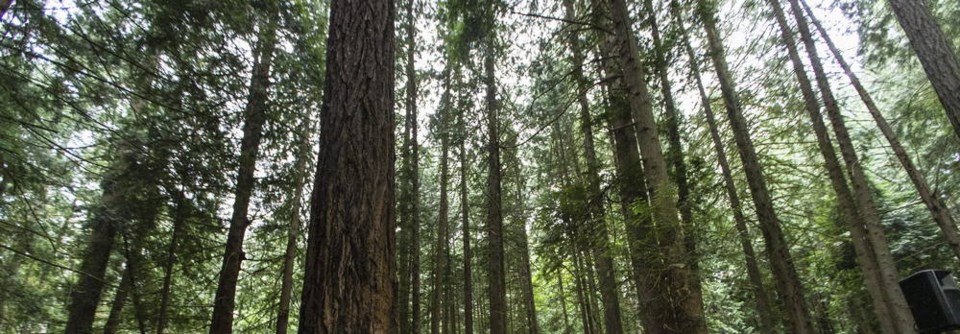Last week, I explored how poorly governments of all stripes have been, at all levels, in protecting nature — and thus in protecting us.
British Columbia is renowned for its forests, Pacific coast and mountains and is often portrayed as a resource-rich province. So one of the tests of any government, you would think, is how well it stewards those resources.
On that basis, every government the province has ever had, as well as every government Canada has ever had (since to some extent the jurisdiction over these resources is shared), has been a miserable failure, if not a downright disaster.
In general, they are more interested in protecting industry and the current economic system than in protecting nature and people. This week and next I will explore two examples that exemplify that failure in B.C.: The management of our forests and our fisheries.
In July 2019, the B.C. government appointed a two-person panel to do a strategic review of the management of B.C.’s old-growth forests. Their report — sent to the minister on April 30 but only released Sept. 11 — is damning. They note that an Old Growth Strategy was published by the Ministry of Forests in 1992, but that “many critical aspects of the strategy laid out in that report were either discarded or only partly implemented.”
As a result of those repeated failures, the panel reported, we now face three key challenges, the first of which is the “high risk to loss of biodiversity in many ecosystems.” Forest values, they remind us, “go far beyond just the trees, as forests also contain other plants, insects and animals, many of which require old forest to survive.” Yet they note projections that show “almost all of the province will be in high biodiversity risk once our current management approach harvests most of the available old forest.”
While the panel notes that “old growth” is officially defined in B.C. “by the age of trees in a forest using specific thresholds (often more than 250 years on the coast and 140 years in the Interior),” that is a timber-management definition they did not adopt.
Instead, they note that in their discussions with stakeholders “a common description was that old growth is original forest in its natural state, not altered by human activity.” And of course, for many, “old growth” means big trees.
These are important distinctions. Based on its forest-management definition, the ministry says that 23 per cent of B.C.’s forests are old trees. But as the panel states, “old does not necessarily mean big trees,” noting that “as much as 80 per cent of the area of old forests consists of relatively small trees growing on lower productivity sites, such as Black Spruce bogs in the North” — forests that are “not likely to be extensively logged in the foreseeable future.”
Large-tree old-growth forest ecosystems, “sites with the potential to grow very large trees cover less than three per cent of the province,” says an independent report released by the Sierra Club of B.C. in April. But those sites have been intensively harvested, so these ecosystems “are almost extinguished and will not recover from logging.”
And, added the Sierra Club, of what remains “most are on the chopping block” as “every day more than 500 soccer fields of old-growth forest are clearcut in B.C.”
The strategic review panel recommends a shift from “a timber-based focus with ecological health as a constraint” to “an ecologically-based focus with timber as one of many benefits.”
To accomplish this they recommend the province “declare the conservation and management of ecosystem health and biodiversity of British Columbia’s forests as an overarching priority.”
They also recommend the province “defer development in old forests where ecosystems are at very high and near-term risk of irreversible biodiversity loss.”
But while the Sierra Club welcomed the panel’s report, especially its recommendation to defer development, the club notes “the B.C. government has not committed to implementing nor funding the panel’s recommendations and … only identified nine areas for immediate deferral.”
It is shameful that it has come to this point, as successive governments have failed to adequately protect our forests. The next government must commit to fully implementing and funding the panel’s report.
Dr. Trevor Hancock is a retired professor and senior scholar at the University of Victoria’s School of Public Health and Social Policy.



